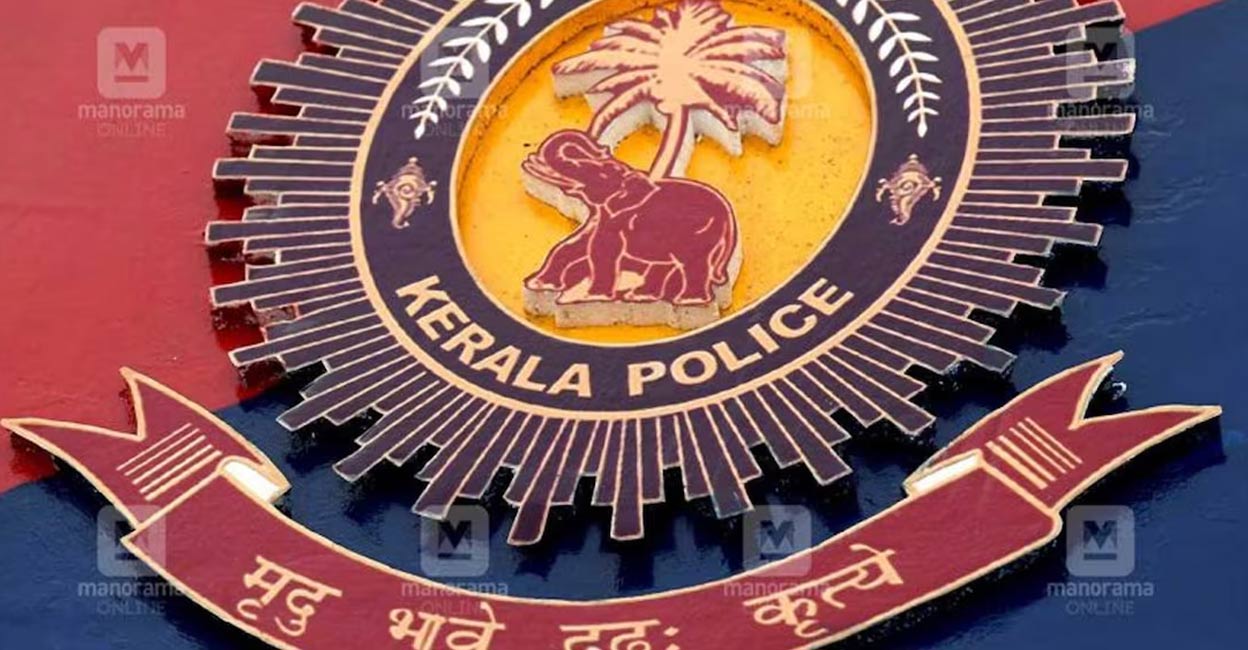How Kasaragod police, doctors breached privacy protocol and ruined life of POCSO complainant

Mail This Article
Kasaragod: Amina Rahman* has no joy in her life, said her mother Fathima Ahmed*. "My daughter is mentally shattered. She does not study, does not eat well, does not speak to people," said Fathima. This year in Class 11, she failed in all subjects. "She was a bright student till Class 9." Amina began to spiral down into depression last year after Kasaragod's government doctors and Kumbla Police examined her in the labour room, in violation of the government protocol and exposing her before her relatives.
In the fag end of her Class 10 academic year, she allegedly accused the male Arabic teacher (41) at her government school of looking at her with sexual intent and asking her if she watched porn videos. The teacher allegedly repeated the act in a closed room, too. Amina's cousin and batchmate Nadia Iqbal* also accused the teacher of sexual harassment.
On March 3, 2023, Kasaragod's Kumbla Police registered two cases against the Arabic teacher under the Protection of Children Against Sexual Offences (POCSO) Act, based on the complaints purportedly filed by Amina and Nadia. The two girls later withdrew their complaints, and the High Court of Kerala quashed the two cases, following which the Department of Education reinstated the teacher in another school, but with a 'censure' because there were many complaints against him from students in the previous years, too.
However, after the FIRs were registered in March 2023, Kumbla police took the two girls to the General Hospital in Kasaragod for medical examination. They paraded the girls before the people in front of the labour room while taking them to the gynaecologist, said Amina's mother Fathima.
Among the onlookers were Fathima's relatives, who had come to the hospital for another family member's birth. "They started asking why my daughter was taken to the labour room. They thought my daughter was also pregnant. It was very humiliating. My daughter and I could not leave the house after the incident," said Fathima. The underage girl, Fathima's only daughter, being taken to the labour room, became a talking point in her village. The gynaecologist ruled out any sexual assault but the public shaming left a deep wound on Amina's psyche. "My daughter did not go for the send-off. For a Class 10 student, it was a big day. I wanted her to go," said Fathima, who dropped out after Class 7.
Though Fathima is angry at the police for jeopardising her daughter's privacy, she is directing her anger at the head teacher-in-charge who forwarded the complaints against the Arabic teacher to the police. She wrote to the District Police Chief P Bijoy asking him to book the teacher for fabricating the complaint.
Police violated protocol and they do not know it
According to the Ministry of Women and Child Development's Model Guidelines under the POCSO Act, medical and health professional staff should "not conduct the examination in a labour room or other place that may cause additional trauma to the child.” The same clause has been adopted in the Kerala Medico-legal Protocol For Examination Of Survivors of Sexual Offences 2019. The same protocol asks the medical professionals and police to ensure the privacy of a survivor not only during the examination (clause 27) but also at the place of examination (clause 50).
Police and medical practitioners should take adequate precautions "to prevent others from getting the details regarding the survivor's identity from the place of examination...," reads the protocol. If the girl's mother's account is true, the police have breached the protocol by parading her to the labour room for medical examination, said Advocate Shajjid Kammadam. A public prosecutor for sex crimes against children said investigating officers often record the statements of survivors in police stations violating the standard operating procedure (SOP) issued by the Ministry of Home Affairs.
The SOP says survivors, adult or minor, should never be called to police stations. "But in the record, police show as if the statements were recorded in the Women's Cell or a private place," she said. Police stations should be avoided because they are public places and survivors risk being spotted by a familiar person, she added. By that logic, police should also take care of the survivor's privacy while taking them for medical check-ups.
But the Kasaragod District Police Chief P Bijoy seemed unaware of the protocol banning examinations in the labour room. "People go to the hospital for various reasons. People will not be able to guess (why a girl is going to the labour room)," he said, and added: "We cannot remove all the patients from the hospital. They (the girl's mother) did not have complaints of privacy then."
His confidence stemmed from the fact that the police officers accompanying the girl were in mufti.
"There is no point in police wearing civil dress and transporting survivors in unmarked cars if they are going to parade them before the public and relatives in the hospital. It goes against the spirit of the law," said Adv Kammadam. Government hospitals should have safe private areas where survivors of sexual abuse can be checked in without the risk of breaching their privacy, he said.

Two female and one male public prosecutors for sex crimes against children said police almost always take survivors to labour rooms for examination because hospitals do not have any other private space. At that stage, the office of the public prosecution is not involved, they said. "The law says labour room should be avoided. The survivors or their mothers can ask the investigating officer for a different place of examination," said a female public prosecutor.
Headteacher, counsellor in cross-hairs of PTA, mother
Sometime in late February 2023, the head teacher-in-charge of the government higher secondary school Lakshmi Priya* saw a letter jutting out from the complaint box. She took it out in the presence of two other staff. In broken English, the letter said the Arabic teacher was causing a lot of inconvenience to the girls. It was written presumably by the boys of the school.
The head teacher sent the letter to the Deputy Director of Education (DDE), the highest education officer in a district. He directed the head teacher to forward it to Kumbla police because of the nature of the complaint. By then, the school's counsellor Anitta Mendonca had also gotten a few complaints from the female students. The HM forwarded the counsellor's letter to the police. But when the police did not act on the complaint, the Students' Federation of India (SFI), the students' wing of the ruling CPM, staged a protest at the school.
On March 3, Kumbla Police arrived at the school to take the statement of the students. The same day, the DDE also brought the counsellor of another school, Divya P, to record students' statements. Though several students complained against the Arabic teacher, only two students' statements merited cases under the POCSO Act, said Thrishna K, a woman civil police officer, who recorded the statements.
Based on the statements, the police registered two FIRs on the same day. But the very next day, the two students reportedly told the Parent Teacher Association (PTA) that they were tricked into giving the complaint. PTA president AK Arif, who is a leader of the Indian Union Muslim League (IUML), alleged that the HM fabricated the complaint to settle personal scores with the Arabic teacher. He even said the HM made the students sign on white papers and wrote the complaint on her own. However, CPO Thrishna told Onmanorama that the two FIRs were filed solely based on the student's statement.

As soon as the FIR was registered, the Arabic teacher went into hiding. He returned on March 25. On March 30, the DDE suspended him from service with effect from March 25, pending inquiry. In his reply to DDE's charge sheet, the Arabic teacher maintained that he was being framed and the students no longer stood by their statements recorded by the police. On September 17, 2023, unsatisfied with the Arabic teacher's reply, DDE Nandikeshan directed Kasaragod District Education Officer Dinesha V to conduct an official inquiry into the allegations.
But in two months, the High Court's Justice Gopinath P squashed the two POCSO cases against the Arabic teacher. In the judgment dated November 16, 2023, Justice Gopinath said "The proceedings against the petitioner can be quashed on the ground of settlement... The chances of a successful prosecution are remote." On the strength of the HC judgment, the Arabic teacher got his suspension revoked. But on February 28, 2024, the Kasaragod District Education Officer submitted his report recording the statements of the students, parents and teachers, who all gave a clean chit to the Arabic teacher. But the report also had the findings of counsellor Divya and the statement of a former head teacher who said that he had received many complaints from students against the Arabic teacher and he had let him off with a warning.
After reading through the contradictory statements of the students and other statements, DDE Nandikeshan concluded that there was some merit in the allegations against the Arabic teacher. In the order reinstating him, the DDE said "Such actions (on the part of a teacher) can never be accepted. Such behaviour sends a wrong message to society". The order said: "You are being censured... if in the future any similar complaints are raised, you are being warned that you will face stringent departmental disciplinary action.”
But the PTA president Arif said he considered the Arabic teacher innocent. "We have got the counsellor Anitta transferred to another school. We want the teacher who forwarded the fake complaint also transferred," he said.
(* All names changed to protect identities)


